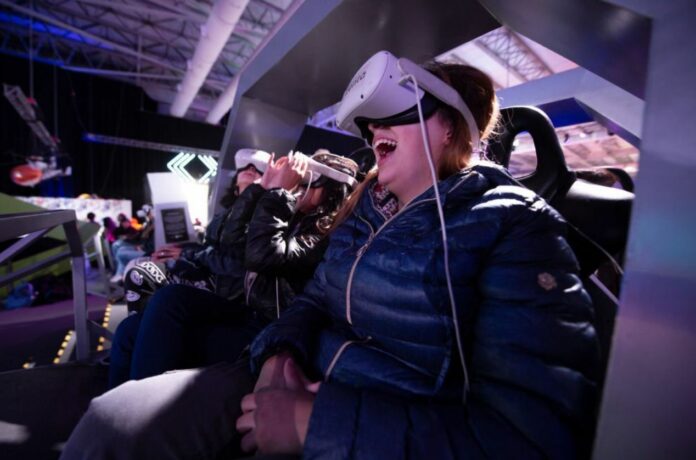Cybersickness: The illness that’s sweeping the nation
Delving into the realm of motion sickness experienced by individuals while engaging in virtual reality (VR) gaming, researchers are striving to unravel the mysteries behind why some people suffer from severe cybersickness while others remain unaffected.
Cybersickness, a variant of motion sickness, manifests when individuals are exposed to immersive applications of VR and augmented reality.
A recent research endeavor, spearheaded by the University of Waterloo, has shed light on the matter. The study reveals that the subjective visual vertical, which gauges an individual’s perception of vertical lines’ orientation, undergoes significant shifts after participants engage in high-intensity VR gaming.
The results of the study “suggest that the severity of a person’s cybersickness is affected by how our senses adjust to the conflict between reality and virtual reality,” according to Professor Michael Barnett-Cowan. “This knowledge could be invaluable for developers and designers of VR experiences, enabling them to create more comfortable and enjoyable environments for users.”
The data was gathered from a sample of 31 participants, and their perceptions of vertical lines were evaluated both before and after engaging in two virtual reality (VR) games: one with high intensity and another with low intensity.
Participants who reported experiencing less sickness were found to have the most notable shifts in their subjective visual vertical after being exposed to VR, particularly during high-intensity gameplay. Conversely, individuals who experienced higher levels of cybersickness were less likely to observe any changes in their perception of vertical lines. The study did not uncover any significant differences between genders or between participants with low and high levels of gaming experience.
“While the subjective vertical visual task significantly predicted the severity of cybersickness symptoms, there is still much to be explained,” commented co-author William Chung.
By comprehending the connection between sensory reweighting and susceptibility to cybersickness, according to the authors, there is a possibility to create tailored strategies for mitigating cybersickness and designing virtual reality (VR) experiences. These approaches would consider the individual variations in sensory processing, aiming to minimize the occurrence of cybersickness.
Ensuring a positive user experience is crucial as VR revolutionizes the realms of gaming, education, and social interaction. One significant challenge that needs to be addressed is cybersickness, a prevalent issue characterized by symptoms such as nausea, disorientation, eye strain, and fatigue. Overcoming this obstacle is essential for maximizing the benefits of VR technology.
The findings were published in the journal Virtual Reality.
Image Credit: Florencia Martin/picture alliance via Getty Images
